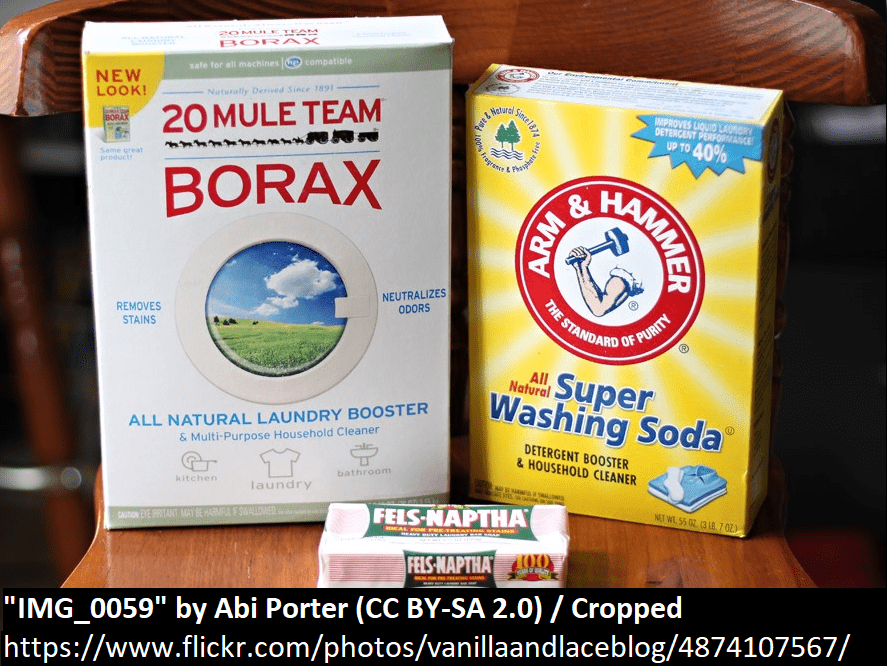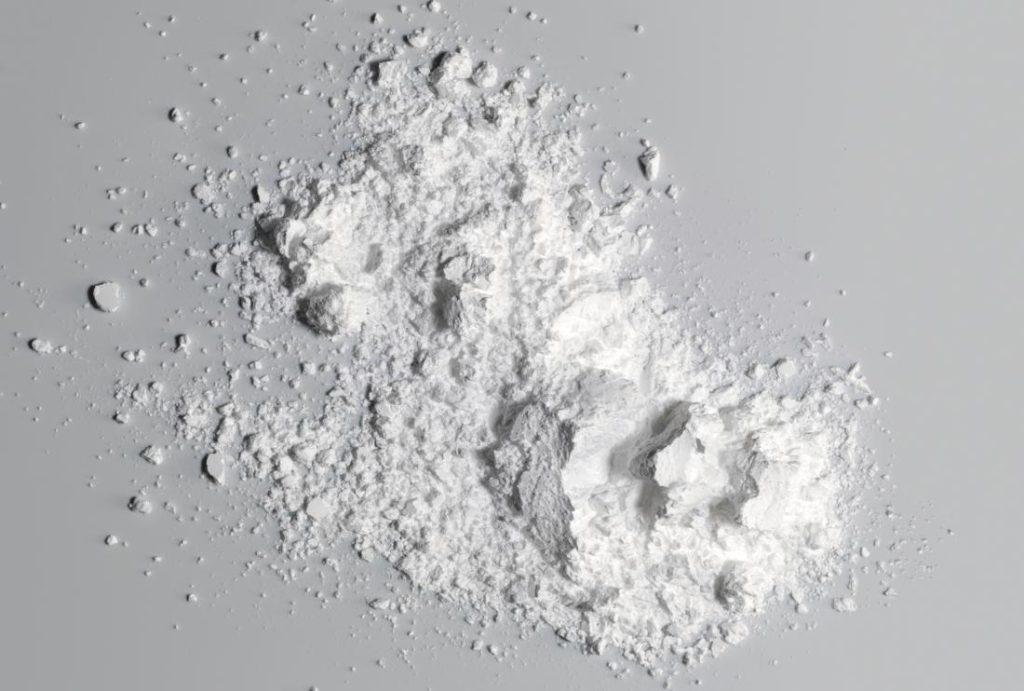Borax powder is toxic to humans if ingested or in prolonged skin contact. The ingestion of borax can cause nausea, vomiting, and diarrhea, and large amounts can lead to shock and kidney failure.
Additionally, it can irritate the skin, eyes, nose, throat, and lungs if inhaled. Borax, a common household cleaning product, is widely used in various applications. However, its potential toxicity to humans has raised concerns. While generally considered non-toxic when handled properly, direct contact with borax can lead to adverse health effects.
We will explore the potential risks associated with borax exposure and its impact on human health. Understanding the dangers of borax is crucial for ensuring the safe use of this substance in households and industries. Let’s delve into the facts about borax toxicity and its implications for human well-being.

Credit: science.howstuffworks.com
Borax Basics
Borax powder can be toxic to humans if ingested, leading to nausea, vomiting, and diarrhea. Large amounts can even result in shock and kidney failure. Additionally, it can irritate the skin and eyes and cause harm if inhaled. Therefore, it’s important to exercise caution when handling borax.
What Is Borax?
Borax, also known as sodium borate, is a naturally occurring mineral compound that is used in various household products.
It is often found in the form of a white powder and is composed of boron, sodium, and oxygen.
Common Uses And Forms
Borax has a wide range of applications, from cleaning and laundry to preserving wood and as an insecticide.
It is commonly used in detergents, cosmetics, and even as a flux in welding.
When it comes to borax, it is essential to understand its properties, uses, and potential risks to human health.

Credit: www.healthline.com
Toxicity Profile
Chemical Properties And Toxicity
Borax powder, also known as sodium borate, is a naturally occurring mineral composed of sodium, boron, oxygen, and water. It is used in various household products such as cleaning agents, pesticides, and as a component in the manufacturing of glass and ceramics. Despite its widespread use, it’s important to understand the potential toxicity of borax powder to humans.
When exposed to borax powder, whether through ingestion, inhalation, or skin contact, it can lead to various adverse health effects. The severity of these effects depends on the level and duration of exposure. It’s crucial to be aware of the potential risks associated with borax powder to ensure safe handling and use.
Borax Vs. Boric Acid
It’s important to distinguish between borax and boric acid, as they are often confused due to their similar names. Borax is a salt of boric acid, but they have different chemical properties and toxicity profiles. Boric acid is a more potent compound and poses a higher risk of toxicity compared to borax. Understanding the differences between these two substances is essential for accurately assessing their potential health hazards.
Human Exposure Risks
Borax powder poses human exposure risks due to its toxicity. Ingesting borax can lead to nausea, vomiting, and even kidney failure, making it crucial to avoid direct contact with eyes or skin. Exercise caution to prevent adverse health effects associated with borax exposure.
Routes Of Exposure
Humans can be exposed to borax powder through various routes such as ingestion, skin contact, and inhalation. Ingestion can occur accidentally, especially in children who may mistake it for candy or sprinkle it on food. Skin contact can happen during the handling of borax powder or through the use of borax-containing products such as detergents and soaps. Inhalation can occur when borax powder is used in poorly ventilated areas or when it is exposed to high temperatures, leading to the release of borax dust in the air.Symptoms Of Borax Poisoning
Borax powder can be toxic to humans when ingested or inhaled in large amounts. Symptoms of borax poisoning can vary depending on the route of exposure and the amount of borax powder that enters the body. Ingestion of borax powder can cause nausea, vomiting, diarrhea, and abdominal pain. It can also lead to shock and kidney failure in severe cases. Skin contact with borax powder can cause irritation, redness, and itching. Inhalation of borax dust can cause respiratory problems, such as coughing, wheezing, and shortness of breath. It can also lead to headaches, dizziness, and weakness. To minimize the risk of exposure to borax powder, it is recommended to wear gloves and a mask when handling it. It is also advisable to keep borax-containing products out of reach of children and to store them in a cool, dry place. If you suspect that you or someone else has been exposed to borax powder and is experiencing symptoms of poisoning, seek medical attention immediately.Safety Guidelines
When using borax powder, it’s crucial to follow safety guidelines to minimize the risk of exposure and potential harm. By adhering to proper handling and storage recommendations, as well as being familiar with first aid measures, you can ensure a safer environment when dealing with this substance.
Handling And Storage Recommendations
When handling borax powder, it’s important to wear protective gloves and a mask to prevent direct skin contact and inhalation of the powder. Ensure that the area is well-ventilated to minimize the risk of inhaling airborne particles. Store borax powder in a sealed container away from food and out of reach of children and pets to prevent accidental ingestion.
First Aid Measures
If accidental exposure occurs, it’s essential to know the appropriate first aid measures. In case of skin contact, wash the affected area with water and mild soap. If borax powder comes into contact with the eyes, flush them with water for at least 15 minutes and seek medical attention. In the event of ingestion, contact a poison control center or seek medical assistance immediately.
Regulatory Stance
Borax In Consumer Products
Borax, a naturally occurring mineral compound, has been widely used in various consumer products such as laundry detergents, household cleaners, and pesticides. Due to its effectiveness as a cleaning agent and preservative, borax has found its way into many households. However, the potential health risks associated with its use have led to regulatory scrutiny and concerns about its safety for humans.
Governmental Regulations On Borax
The regulatory stance on borax varies across different countries and regions. In the United States, the Environmental Protection Agency (EPA) has categorized borax as a pesticide and has established regulations to limit its use in consumer products. The Food and Drug Administration (FDA) has prohibited the use of borax in food products due to its potential toxicity.

Credit: www.poison.org
Debunking Myths
Unraveling the truth about Borax powder, it poses toxicity risks to humans if ingested or in prolonged skin contact. Avoid eye contact and ingestion, as it can lead to symptoms like nausea, vomiting, and even kidney failure in large amounts.
It’s crucial to handle Borax with caution to prevent adverse health effects.
Common Misconceptions
There are a lot of misconceptions surrounding borax powder and its potential toxicity to humans. One of the most common misconceptions is that borax powder is safe to ingest. While it is true that borax powder is commonly used as a household cleaner and has been used in some food products, it is not safe to consume in large quantities. In fact, ingesting borax powder can be extremely dangerous and even deadly. Another common misconception is that borax powder is safe to use in all cleaning applications. While it is true that borax powder is effective at cleaning a variety of surfaces, it is not safe to use on certain materials, such as aluminum, brass, and copper. Using borax powder on these materials can cause them to corrode and deteriorate over time.Scientific Evidence On Borax Safety
There has been a lot of debate over the safety of borax powder, with some people claiming that it is toxic and others insisting that it is safe to use. The truth is that there is scientific evidence to support both sides of the argument. Studies have shown that exposure to borax powder can cause a range of health problems, including nausea, vomiting, and diarrhea. In some cases, exposure to borax powder can even lead to kidney failure and other serious health issues. Despite these findings, some experts argue that borax powder is safe to use in small quantities and that it poses no significant health risks to humans. They point to the fact that borax powder has been used in a variety of household products for decades without any reported adverse effects. Ultimately, the decision to use borax powder is a personal one. While there is evidence to suggest that it can be harmful in certain circumstances, many people continue to use it as a safe and effective cleaning agent.Frequently Asked Questions
How Much Borax Is Toxic To Humans?
Borax is toxic to humans in small amounts, with symptoms like nausea, vomiting, and diarrhea. Larger doses can lead to shock and kidney failure. It’s crucial to avoid ingestion or prolonged skin contact with borax to prevent adverse health effects.
Can You Touch Borax With Your Hands?
While generally non-toxic, it’s best to avoid skin contact with borax to prevent irritation.
What Are The Dangers Of Borax?
Borax can cause nausea, vomiting, and diarrhea if ingested. High exposure can lead to headache, dizziness, weakness, and passing out. It can also irritate the skin, eyes, and respiratory system.
What Happens If You Ingest Borax Powder?
Ingesting borax powder can cause nausea, vomiting, diarrhea. Large amounts may lead to shock, kidney failure, and irritation to skin, eyes, nose, throat, and lungs. It’s banned in U. S. food products.
Is Borax Powder Safe For Human Consumption?
Borax can cause nausea, vomiting, and diarrhea if ingested. Large amounts may lead to shock and kidney failure.
Conclusion
It is crucial to handle borax powder with care due to its potential toxicity. Avoid direct contact and ingestion to prevent harmful effects on health. Always follow safety guidelines to minimize risks associated with using borax in household products. Stay informed and stay safe.

